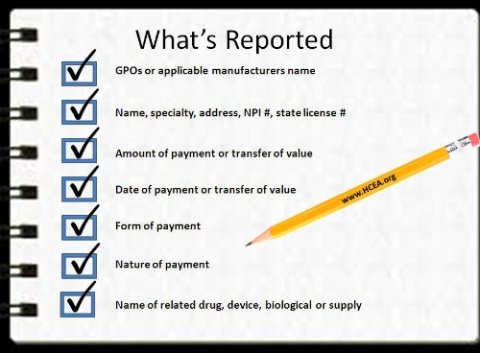What the Physician Payment Sunshine Act Means to Your Exhibit Program

Healthcare exhibitors are keenly aware of the timeline for implementation of the 2010 federal Patient Protection and Affordable Care Act’s Physician Payment Sunshine provisions, which require disclosure of certain payments or gifts to physicians.
In the Final Rule released by the U.S. Centers for Medicare and Medicaid Services (CMS) on Feb. 1, applicable manufacturers and group purchasing organizations, many who are exhibitors, are currently in the period between required payment data capture, which began Aug. 1 and initial reporting, which begins March 31.
Testament to the rules’ complexity is the fact that the Final Rule covered 287 pages of clarifications, while the original text ran just eight pages. At its core, the law aims to provide a way to let the public know when a doctor has a financial relationship with manufacturers of specific drugs, devices or medical supplies.
Given this interplay of urgency, importance and complexity involved in implementation of the Sunshine provisions, healthcare exhibitors can benefit from a primer on topics they should address with their individual compliance departments.
The following is a sample set of questions your exhibit teams may have, along with some related subtleties included in the Final Rule, all of which underscore the importance of clear communication and informed exhibit program decisions:
• Does my company fall within the definition of an applicable manufacturer, as defined by the Rule?NOTE: the answer depends in part on whether payment is available for any of your company’s products under Medicare, Medicaid, or CHIP; determination should be made by your compliance department.
• What HCPs are covered in the Act? Note: “Physician” includes doctors of medicine, osteopathy, dentists, podiatrists, optometrists and chiropractors who are legally authorized to practice by a state. Residents and non-physician prescribers such as nurse practitioners are NOT included.
• How is “transfer of value” defined and what is included? Note: educational materials not directly benefiting patients or not intended for patient use are subject to reporting, e.g. newsletters provided to physician covered recipients are NOT exempt.
• What physician data must be reported and how will you capture it? Note: NPI and state license numbers are both required.
• What is my company’s policy on offering items of value in our exhibit program? Note: the Act covers reporting of payments or transfers of value; it is up to each applicable manufacturer to determine its policy on offering such items.
• How do we calculate the value for a payment or other transfer of value? Note: tax and payments for shipping and handling are included in the total payment or other transfer of value.
• Food is an important component of our exhibition hospitality. How do we account for it? Note: CMS states that “food and beverage provided at conferences in settings where it would be difficult to establish the identities of people partaking in the food do not need to be reported.” This includes instances where the applicable manufacturer provides a large buffet meal, snacks or coffee that are available to all conference attendees and where it would be difficult to establish the identity of the physicians who partook in the meal or snack.
This list is of course by no means exhaustive. Healthcare exhibitors can find further support and clarification by contacting HCEA. HCEA’s Sunshine toolkit includes articles, resources and updates. In addition, HCEA has recently produced a YouTube video, HCEA Sunshine, which offers a helpful overview for compliance. HCEA also provides the latest information on other legal and regulatory issues affecting the healthcare convention marketing and exhibitions industry, including updated information on:
• NPI data collection
• Sunshine Act
• Local and state laws
• European regulatory updates
• AdvaMed code
• PhRMA code
• Webinars
• Workshops
• Newsletters
• Website updates
• Expert education
• Meetings
How is your team approaching these new regulations? Share your tips below. I’m sure other exhibitors would love to hear from you.
Sue Huff is is a 30-year veteran of the convention business, as well as president of Healthcare Convention and Exhibitors Association and Director, Global Conventions, for Medtronic, Inc.


Add new comment